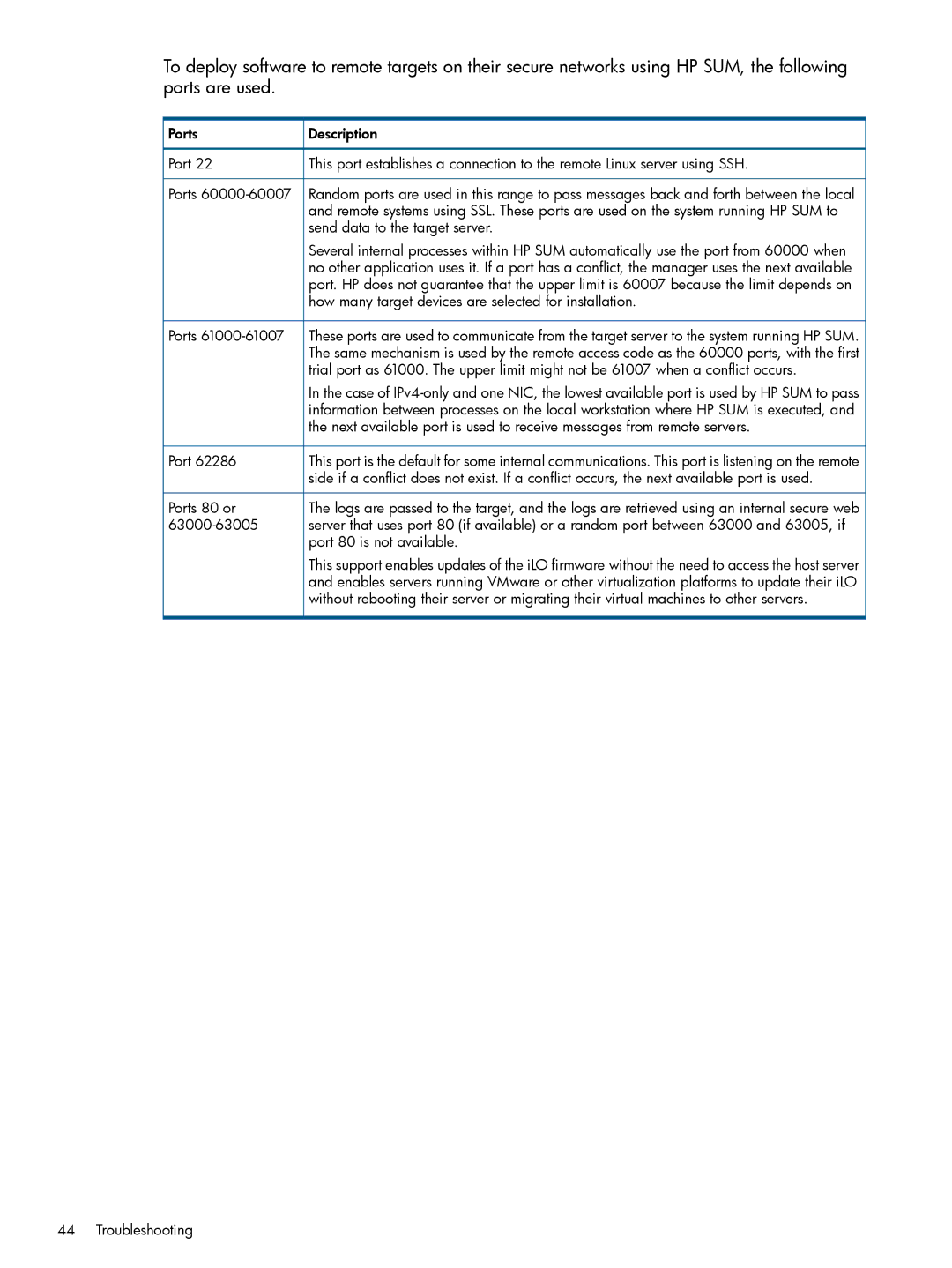
To deploy software to remote targets on their secure networks using HP SUM, the following ports are used.
Ports | Description |
Port 22 | This port establishes a connection to the remote Linux server using SSH. |
Ports | Random ports are used in this range to pass messages back and forth between the local |
| and remote systems using SSL. These ports are used on the system running HP SUM to |
| send data to the target server. |
| Several internal processes within HP SUM automatically use the port from 60000 when |
| no other application uses it. If a port has a conflict, the manager uses the next available |
| port. HP does not guarantee that the upper limit is 60007 because the limit depends on |
| how many target devices are selected for installation. |
Ports | These ports are used to communicate from the target server to the system running HP SUM. |
| The same mechanism is used by the remote access code as the 60000 ports, with the first |
| trial port as 61000. The upper limit might not be 61007 when a conflict occurs. |
| In the case of |
| information between processes on the local workstation where HP SUM is executed, and |
| the next available port is used to receive messages from remote servers. |
Port 62286 | This port is the default for some internal communications. This port is listening on the remote |
| side if a conflict does not exist. If a conflict occurs, the next available port is used. |
Ports 80 or | The logs are passed to the target, and the logs are retrieved using an internal secure web |
server that uses port 80 (if available) or a random port between 63000 and 63005, if | |
| port 80 is not available. |
| This support enables updates of the iLO firmware without the need to access the host server |
| and enables servers running VMware or other virtualization platforms to update their iLO |
| without rebooting their server or migrating their virtual machines to other servers. |
